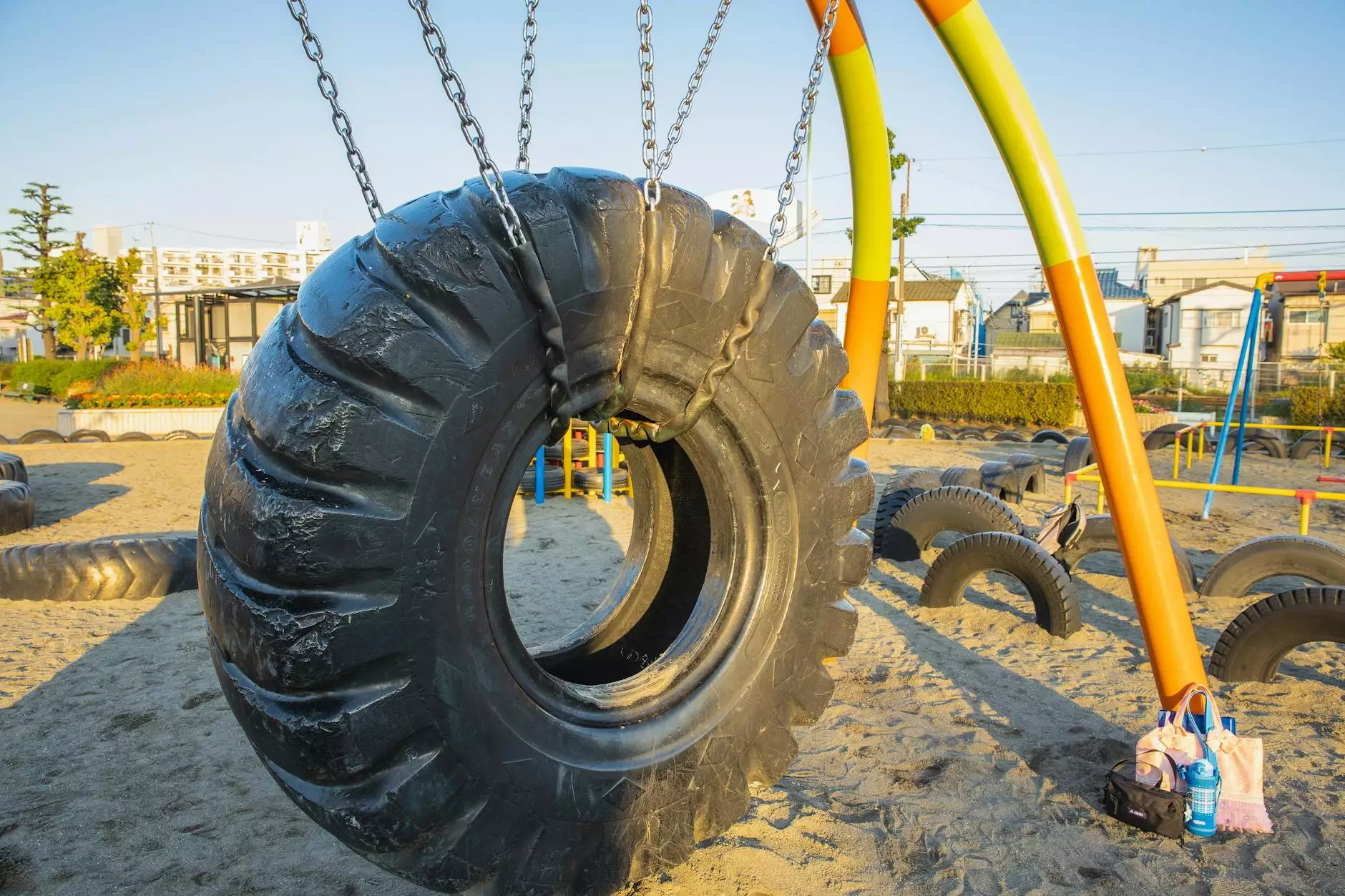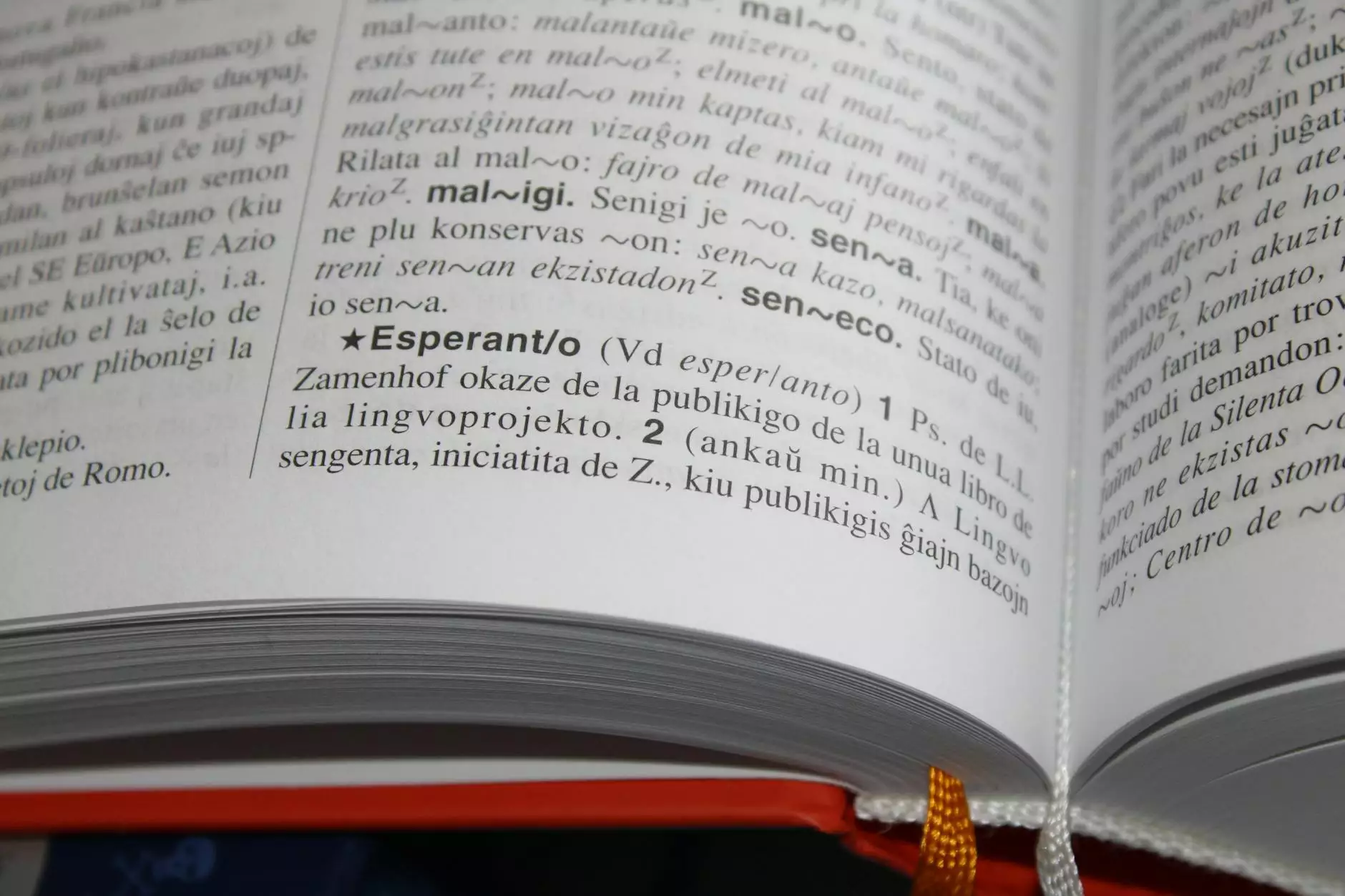Learn English Vocabulary - Hang Out vs. Play
English Vocabulary Lessons
Welcome to NJCLT - your ultimate resource for mastering the English language. In this free English lesson, we will delve into the nuances between two commonly confused words: hang out and play. Understanding their differences will not only broaden your vocabulary but also help you communicate more effectively in various situations.
The Meaning of Hang Out
Hang out is a phrasal verb that signifies spending casual, leisurely time with friends or acquaintances. It implies a relaxed atmosphere and often involves engaging in activities such as grabbing a coffee, going to a movie, or simply lounging around. It emphasizes the social aspect of spending time together, fostering social connections, and enjoying each other's company.
For example, you might say, "Let's hang out at the park this afternoon" or "We usually hang out at our favorite cafe on Sundays."
The Meaning of Play
On the other hand, play can refer to various activities that involve participating in games, sports, or recreational pursuits. It implies a more active and competitive approach, emphasizing the involvement of physical skills, rules, and a specific objective. Playing often requires teamwork, strategy, and a competitive spirit, depending on the context.
For instance, you could say, "Let's play basketball at the local court" or "I enjoy playing chess with my friends in the evenings."
Distinguishing Hang Out from Play
While the meanings of hang out and play might seemingly overlap in some cases, it's crucial to understand their distinct connotations.
Contextual Differences
The choice between hang out and play depends heavily on the nature of the social interaction. Hang out typically involves a more relaxed setting, where the focus is on spending time together and enjoying each other's company without a specific goal. Play, on the other hand, implies a more structured and organized activity with specific rules and objectives.
Consider the context and the desired outcome when deciding which term to use. If you're gathering with friends to simply chat, relax, or engage in non-competitive activities, hang out would be the appropriate choice. On the contrary, if you're planning to participate in a game, sport, or any other activity with specific rules and objectives, play would be the suitable option.
Activities and Examples
Hang out encompasses a wide range of activities, including going for walks, visiting cafes or restaurants, watching movies, shopping, or engaging in light-hearted conversations. It allows for flexibility and spontaneity based on the participants' preferences and interests.
On the other hand, play involves activities like playing sports such as soccer, basketball, or tennis, engaging in board games, card games, or video games, and participating in organized competitions or events. It typically requires a set of rules, scoring, and an element of competitiveness.
Enhancing Your Vocabulary Skills
Expanding your vocabulary and understanding the subtle nuances between words is essential for effective communication in any language. Familiarizing yourself with terms like hang out and play helps you express yourself accurately and conveys your intended message more precisely.
At NJCLT, we are committed to helping you improve your English skills through comprehensive and engaging lessons. Our expert instructors provide tailored guidance, interactive exercises, and practical examples to ensure your language learning journey is both enjoyable and effective.
Conclusion
In conclusion, mastering the difference between hang out and play enriches your vocabulary and enhances your ability to communicate in English. Remember, hang out emphasizes casual social interaction and relaxed settings, while play involves structured activities with specific objectives. Understanding these distinctions will enable you to choose the appropriate term based on the context and ensure effective communication in various situations.
Embark on your language learning journey with NJCLT today and unlock your full potential in English!










